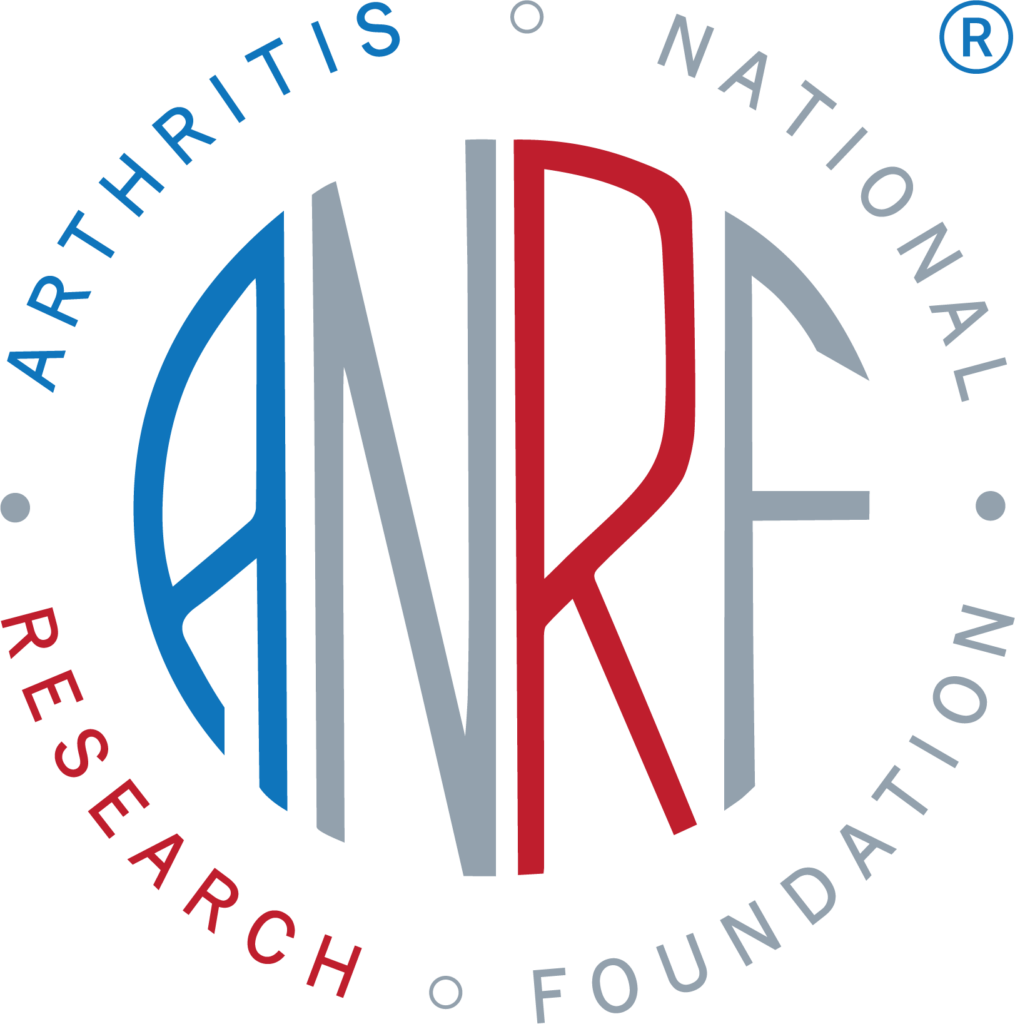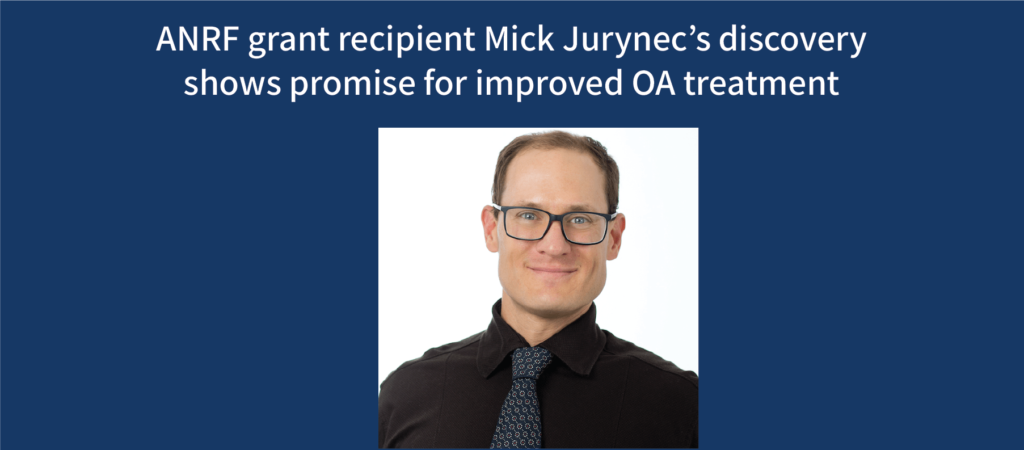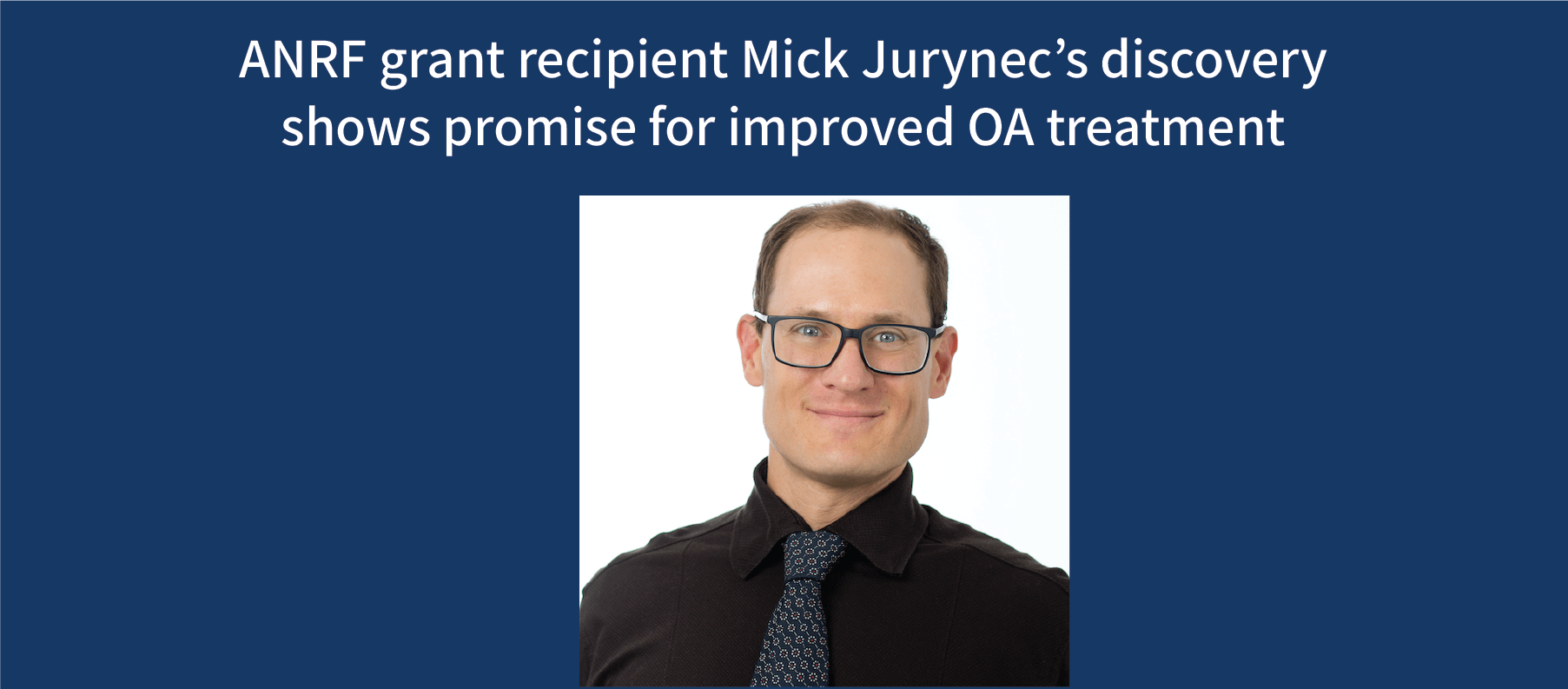When Michael Jurynec, Ph.D., was awarded ANRF grant funding two years ago, he was laser focused on his project, had an established record of research and publications and was at an institution with a strong reputation in studying genetics. These factors proved to be key as he and his team at the Jurynec Lab in the Department of Orthopaedics at the University of Utah, have already had their research accepted, published in the highly regarded Annals of the Rheumatic Diseases.
As part of the 2020 cohort of funded scientists, Dr. Jurynec’s original project, titled “Hypothesizes that mutations in specific genes as found in OA susceptible families may underlie the enhanced joint inflammation that is a hallmark of OA progression,” was selected to receive $100,000 in the first year and subsequently received second year funding as well.
The study quickly progressed in the first year, identifying pathways and mechanisms underlying OA susceptibility with the ultimate goal of developing therapeutics that prevent the onset or limit the progression of the disease. The team studied 150 families with a genetic disposition for osteoarthritis with the goal of determining which genetic pathways lead to, or could explain, abnormal inflammation in joints throughout the body.
What they found was significant: there is a genetic flaw that does lead to abnormal inflammation in the hands, hips, knees and other joints which can explain the severity in which some individuals develop osteoarthritis more than others.
“There are likely many ways in which the genes in this pathway can be altered by aging, obesity, and other disease states,” Dr. Jurynec indicated in a press release. “Those alterations could predispose an individual to osteoarthritis. With that in mind, we could possibly start to consider how we identify biomarkers of this pathway that would allow us to identify people who have the disease before the onset of symptoms and find earlier and better treatments.”
For Dr. Jurynec, his interest in the study of arthritis goes beyond the scope of science. It is personal — osteoarthritis runs in his family, and he, too, is affected. His personal experience and interest in molecular biology and genetics led to a desire to better understand the disease, use his training and access the unique population genetic resources at the university to study OA affected families.
Outside of work, among the way he manages his health is by running ultra marathons, routinely 50 or 100 miles in Utah and other states offering alluring landscapes and distance runs. Most recently he finished first among all age groups in the Bryce Canyon 100-mile ultra, in just under 22 hours. His love of fitness and the outdoors extends to his family as he, his wife and daughter enjoy spending time together outside hiking, backpacking and skiing.
Read more about the Jurynec Lab research and Dr. Jurynec:
The Annals of Rheumatic Diseases
Osteoarthritis: NOD/RIPK2 signalling pathway contributes to osteoarthritis susceptibility
Coverage: Genetic Discovery Could Lead to Early Detection, Treatment for Osteoarthritis
Dr. Jurynec:
2019 Superior(F) Interview with 100 Mile Winner Mick Jurynec







